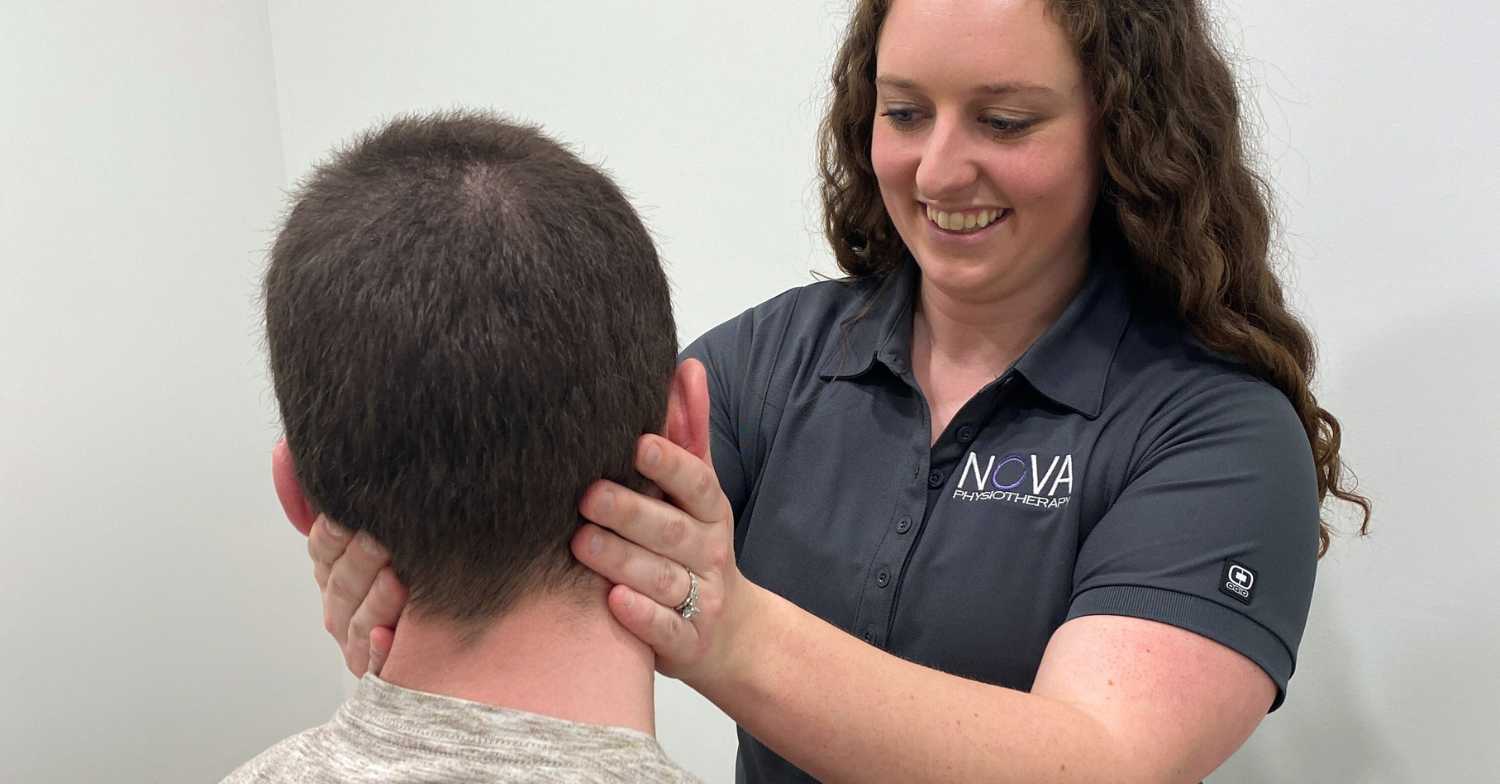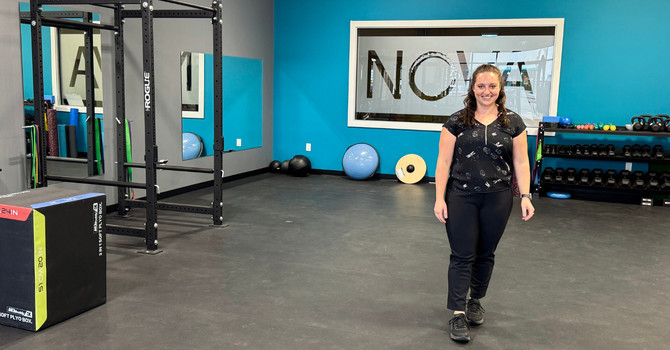
Did you know that physiotherapists can treat dizziness and vertigo?
Here at Nova Physiotherapy, physical therapist Amber Deschner is a certified vestibular therapist. She has taken multiple vestibular courses in order to assess and treat these symptoms!
What is Vestibular Physiotherapy
Feeling dizzy can be an awful feeling and can impact our quality of life. There are many different factors that can cause or affect dizziness such as the inner ear, the neck and reduced balance or proprioception. Vestibular physiotherapy looks into the vestibular system and works on addressing dizziness disorders and any possible balance issues. Therapy can look to improve dizziness, neck pain, and balance!
An assessment is the first place to start so we can get to the root of the problem and create the right treatment plan for you. Before we talk about what the vestibular assessment involves, a few definitions will be reviewed that are often interchanged.
Dizziness in a term used to describe a range of sensations such as feeling faint, off balance, nauseous, weak, confused or unsteady.
Vertigo is the sensation that you, or the environment around you, is moving or spinning. It is a type of dizziness.
Dizziness and vertigo are very common symptoms that are described but it is important to see the differences between the two. If you are confused about the differences, don’t worry - your physiotherapist can go into detail about this during your session!
Symptoms may be brought on by changes in head or eye position. Changes in head position include movements such as looking down, looking up, or bending over to tie up your shoes. Changes in eye position occur when you are reading a book or while looking at your computer or phone - among others!
Depending on the cause of your symptoms, these sensations may last for a few seconds or for a few minutes and then symptoms typically resolve until you change your head position or move your eyes again.
With that being said, there are many causes of dizziness and vertigo and a thorough assessment should be completed to help determine the cause of these symptoms. If you are noticing other symptoms alongside the dizziness such as changes in speech, double or blurry vision, changes in swallow, recent unexplained weight loss, fever or chills, night sweats, drop attacks (ie you are suddenly falling for no clear reason), or hearing loss you should be assessed by your family doctor before coming to physiotherapy. Your family doctor can also help rule out cardiovascular and/or neurological conditions that may be contributing to your symptoms.
What the vestibular physiotherapy assessment involves
When you attend a vestibular assessment at Nova Physiotherapy you will be seen for approximately one hour. The session will begin with an in-depth history which will include asking questions about the symptoms you are feeling. Some common questions include;
- When did your symptoms start?
- Did the symptoms come on gradually or suddenly?
- What do your symptoms feel like? For example; vertigo, faint, light headed, unsteady
- Have you had these symptoms before?
- Do these symptoms come and go or are they always there?
- How long do your symptoms last when you feel dizzy? For example; seconds, minutes, hours or days
- What makes your symptoms better?
- What makes your symptoms worse?
- Does moving your head make you dizzy? For example; looking up, bending forward, rolling over, looking over your shoulder, getting in and out of bed
- Does moving your eyes make you dizzy? For example; reading text on your phone or computer, watching tv, sitting in a moving vehicle
Once we get a detailed history of what you are feeling, testing will begin to help determine the cause of your dizziness. Factors such as the inner ear, cervical spine (the neck), and/or reduced balance may be causing your symptoms. The treatment plan will be created with you based on the findings of the assessment.
Treatment
Based on these findings, treatment may include a particle positioning technique, exercises to help address any noteworthy findings from the assessment, education on the condition and how to manage symptoms through possible lifestyle changes.
We recommend having someone drive you to and from the appointment. Some people will feel ‘off’ for the rest of the day after the assessment while others may feel great. As we cannot guarantee how you may be feeling after the session, it is a good idea to have a safe ride to and from the clinic!
Dependent on what is contributing to your symptoms, treatments may drastically improve your symptoms within 1-3 treatments. This is typically the case with the most common diagnosis of Benign Paroxysmal Positional Vertigo (BPPV) which affects the inner ear. If other conditions are the cause of your symptoms, your treatment plan will look different and may require additional follow-ups. This will be discussed in detail with you during the assessment and we encourage you to ask as many questions you have!
If you are experiencing dizziness, vertigo, feeling light-headed or unsteady, it is time to book an assessment with Amber.




